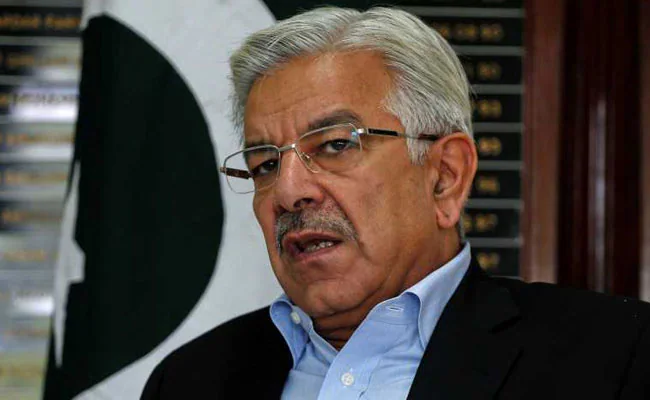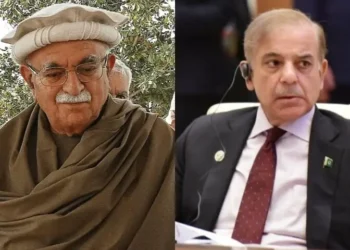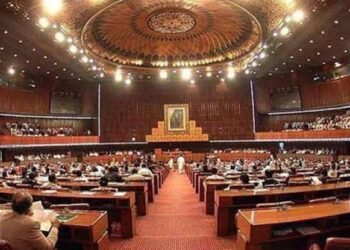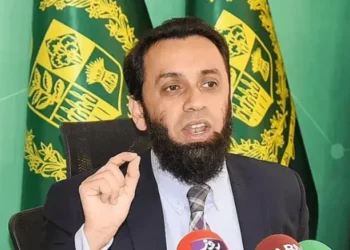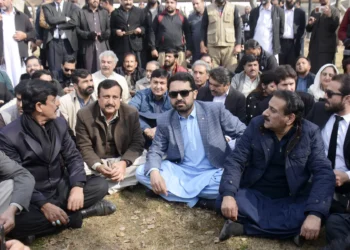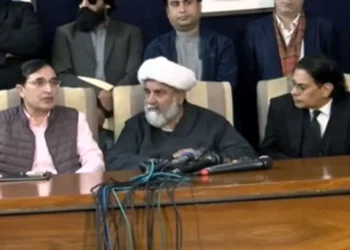Web Desk; Defence Minister Khawaja Asif on Friday strongly rejected and condemned the controversial remarks made by federal government spokesperson Danyal Chaudhry regarding the possible role of Pakistani troops in the proposed Gaza peace force, which reportedly included disarming Hamas.
Speaking to reporters about the issue, Asif expressed shock over the statement given by the federal parliamentary secretary for information and broadcasting during a TV interview, saying, “God forbid — what kind of statement has he made? None of this is our target or policy.”
Earlier this week, Danyal Chaudhry, in an interview on ARY News, had said that Pakistan and other countries participating in the Gaza peace mission would ensure “no extremism, violence, or cross-border attacks,” and that “disarming Hamas” would be part of the mission’s objectives. He also claimed Pakistan would “fulfil its duty to protect Muslim brothers and ensure stability.”
Reacting to these remarks, Khawaja Asif clarified that Pakistan had made no such commitment and would only follow a collective decision once the International Stabilisation Force (ISF) is formally constituted under the US-brokered Gaza Peace Agreement. “I have no information about such discussions; speaking on personal opinion is inappropriate,” he added.
The minister also agreed that the deployment of Pakistani troops in Gaza amid continued Israeli airstrikes could complicate matters. He reiterated that “no decision has yet been finalized” regarding Pakistan’s participation, though he confirmed discussions were ongoing at an advanced stage within the government and military.
Officials privy to the talks said Pakistan’s inclusion in the ISF would stem from moral responsibility and its long-standing record in UN peacekeeping missions. However, they cautioned that domestic sentiment could pose challenges, as many Pakistanis view the Gaza crisis through a deeply emotional and religious lens.
The ISF, composed mainly of troops from Muslim-majority countries, is expected to maintain internal security, secure border crossings, assist in humanitarian operations, and supervise the transitional Palestinian authority.
On the Afghan front, Asif also discussed the ongoing ceasefire agreement with the Afghan Taliban, noting that a joint monitoring and verification mechanism was being developed to ensure long-term stability. He warned that any failure to curb cross-border terrorism would indicate “complicity or connivance” on the part of the Afghan authorities.
He said the Taliban privately admit that the banned Tehreek-e-Taliban Pakistan (TTP) operates from Afghan soil, adding that most of the TTP leadership is based in Kabul. “They are not staying in hotels; their sanctuaries are being provided,” he remarked.




















































